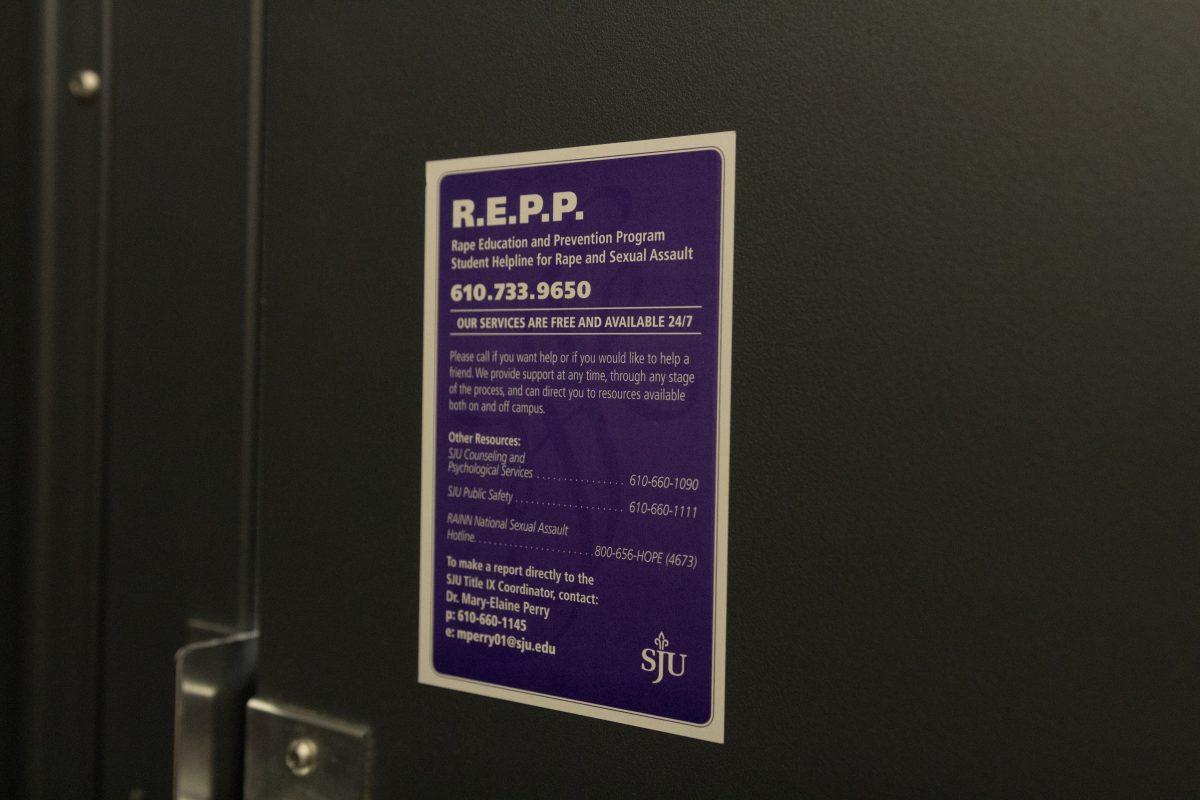Student advocates educate and provide resources
Gabby Southworth ’18 had no intention of becoming a member of the university Rape Education Prevention Program (R.E.P.P.) when she first arrived at St. Joe’s. Then she was sexually assaulted in the spring semester of her freshman year.
Southworth now serves as the president of R.E.P.P. and views her own experience as motivation for the work she does.
“I chose to take the negative experience that happened to me, and I chose to help others through their experiences,” said Southworth.
R.E.P.P. provides 24-hour anonymous counseling to survivors of sexual violence as well as plans educational events throughout the academic year. It is a confidential resource that survivors or their friends and families can call for a listening ear, to get information about resources available to them or to gain insight on how to help a loved one.
“The focus has changed a little bit from more narrowly sexual violence to now more broadly sexual violence as well as dating violence,” said Raquel Kennedy Bergen, Ph.D., professor of sociology, director of Gender Studies and R.E.P.P. faculty moderator.
Bergen highlighted the group’s emphasis on providing support to whatever extent a survivor is comfortable with.
“These are students who are peer advocates and who care and are generally chosen and involved in the program because they’re empathetic and passionate about the work they are doing,” said Bergen. “It’s a listening ear. It’s not a position in which you are being told you must go get a medical examination, you must do X, Y and Z. It’s really to advocate for whatever the survivor wants or needs.”
Working with R.E.P.P. requires students to meet on a weekly basis as well as attend crisis training, in addition to helping to operate the call line. This year, the 20-plus hour training, which is run through Victim Services of Montgomery County, is being funded by a $300,000 federal grant awarded to St. Joe’s in November 2017. Nine students are currently going through the training.
“It involves doing educational programming as well as now doing the crisis training,” said Bergen. “It’s a serious time commitment, and I think it attracts motivated, committed students who are passionate for all sorts of reasons about the work.”
After taking a First-Year Seminar on sociology with Bergen, Gabrielle Loeser ’20 decided to join R.E.P.P. in the spring semester of her freshman year. For Loeser, being an advocate is a crucial part of the work R.E.P.P. does.
“It is allowing them to have someone who they feel like they can talk to who they feel like will understand what they are going through,” Loeser said.
The fact that R.E.P.P. volunteers are college students themselves also makes them especially well equipped to help others, Loeser said.
“Because we’re students, I think we understand the atmosphere more of the different anxieties and things you will be worried about as a student when it comes to reporting or talking about it in general,” Loeser said. “I think we just have a better understanding of the atmosphere on campus and what things you would be worried about when you are reporting.”
Southworth, who hopes to continue to work in this field after graduating, said that survivors should always feel like they have someone who will listen to them.
“There are people who care about you on our campus, there are people to help you who care about you who have been through it and it’s our job,” Southworth said. “This is what gets us out of bed in the morning.”













































